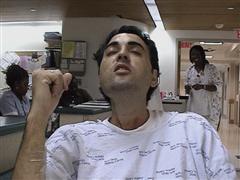
Archives


Tel Aviv-Jaffa
Produced in celebration of the 100th anniversary of Tel Aviv, the two-part film Tel Aviv-Jaffa explores the rich and complex history of Tel Aviv and Jaffa.
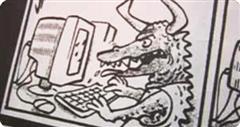
Religion.com
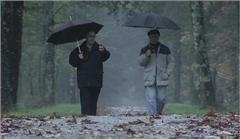
Menachem and Fred
This is the story of two brothers who for decades feared to meet.
Only when rare letters were found, from their parents in a concentration camp, did Menachem and Fred start to re-establish contact and come to terms with their past.
Menachem and Fred live in two extremes of Jewish identity. Fred is an American aerospace engineer. His children are married to Christians. Menachem is religious, holds a doctorate in science and lives in Jerusalem. His children live in West Bank settlements.
The film accompanies Menachem and Fred on an emotionally charged journey, through which a strange, unexpected relationship develops with the Hopp family, sons of the Nazi who deported their family from their home in Germany.
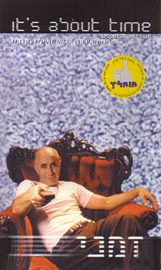
It’s About Time
Israeli filmmakers Elona Ariel and Ayelet Menahemi direct the hour-long documentary Zmani (It’s About Time). Shot on video, the film uses a humorous postmodern approach to question the value of time in Israeli society, and contains comments from all different kinds of people on the nature of time, in addition to standup comedy provided by Yakov Cohen and musical performances by Jonathan Avishay’s jazz quartet.
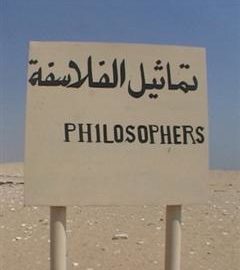
Guide to the Perplexed
Moses Maimonides wrote “The Guide for the Perplexed” circa 1190, a Jewish philosopher’s response to the perplexities of the12th Century. The film follows Maimonides’ footsteps from Cordoba (Spain) through Fes (Morocco), Acre, Jerusalem, Hebron, Cairo (Egypt), ending in Tiberias. Its events take place in an area torn between religious fundamentalism and secular materialism, resenting and yet drawn towards the American culture of rating, swaying between war and peace. Maimonides comments on the film’s events in words quoted from his works. Are they still relevant to perplexities of the 21st Century?
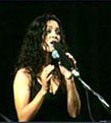
Ponar
The Jews used many ways to struggle against the Nazi system. One way, perhaps the most heroic and least familiar, was the cultural struggle. Against the threat of impending death, the horrors of daily existence and in the most impossible conditions, a life full of rich, creative and spiritual culture was established.
The film is set in Ponar, the Vilna ghetto, during the years 1940 to 1943 and tells the amazing story of the song contest that was held in the ghetto in the year 1943, a few months before it was destroyed.
The film focuses on one particular song and its composer, an 11 year old boy named Alek Wolkovsky. The song is called Ponar in Hebrew, “Shtilar Shtilar” (quietly) in Yiddish. The words of the song, which tell of the gloom and doom that had befallen Vilna, were turned into a lullaby so that the Nazis would not be able to understand.
Sixty years later, the director, Racheli Schwartz, found the child – composer, Alexander Tamir, who had since become a professor of music and a renowned pianist. The film accompanies Alexander on his return, 60 years later, to his hometown.
The emotional and moving journey to the past exposes how culture and art overcame the destruction, and reaches a peak when Alex gets on to that very same stage, in the Jewish theater in the ghetto. He plays the song that won the competition, which has almost become an anthem.
A young Israeli singer, who is the same age as the singers who prepared for the competition in 1943 but were killed before they could actually compete, accompanies Alexander Tamir’s music.
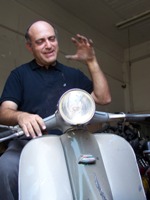
Socrates on a Scooter
A seemingly simple story: a young man goes out to war and doesn’t return.
Many years later his son, now an adult, decides to make an album or perhaps a film, commemorating his father. He soon discovers that the young man who went to war, Yaakov Meir, was a revolutionary and a philosopher. His students called him Socrates. Riding around on a Lambretta scooter, Yaakov left the impression of being a charismatic teacher. Slowly it becomes clear to the son that the details he knew about the circumstances of his father’s death were far from the truth. This is a personal detective movie revealing fascinating characters: both the father and his son – who is the real hero of the film.

Beyond the Horizon
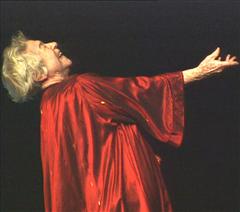
Fall
At the age of eight she was already dancing at Moscow’s Bolsoi theatre. Since then she has performed on the world’s most prestigious stages.
In the course of a career spanning over half a century, Deborah Bertonoff achieved world fame not only as a dancer with unique style and personal statement, but also as an author and researcher of dance.
For her life’s work she won the prestigious Israel Prize. Today, aged 86, in the small room where her only son committed suicide just a meter away from her and her late husband, she deals for the first time in fourteen years with the stacks of paper, photographs and other paraphernalia that clutter the room. Another life cycle that must reach closure before her last performance.
A summation? A farewell? Not at all. Just the desire not to be pathetic. Just not to fall.
